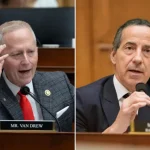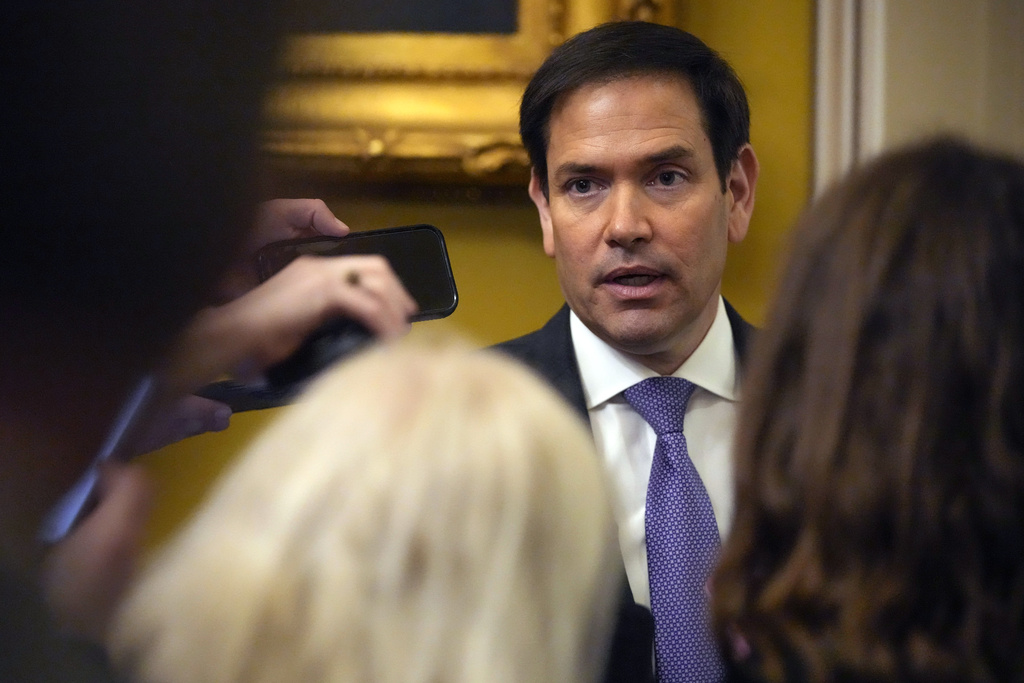
Former President Donald Trump’s weekend donor retreat is being billed as a vice presidential audition as the presumptive 2024 Republican nominee weighs his running mate options.
Trump has suggested in interviews he will be making a decision “closer to Wisconsin time,” meaning the Republican National Convention in Milwaukee this July.
While former Vice President Mike Pence might be seen as a cautionary tale for potential Trump understudies, the job is nevertheless attractive to ambitious Republicans. If Trump wins in November, he will be constitutionally ineligible to seek a third term, and his vice president will have an inside track for the 2028 GOP nomination.
The different names being floated in the Trump veepstakes bring their advantages and disadvantages. Here are a few of the factors Trump will have to consider as he ponders each of them.
ELECTION 2024: FOLLOW LATEST COVERAGE
Sen. Marco Rubio (R-FL)

Pros: Rubio is a well-known, telegenic three-term Republican senator from a state critical to Trump’s path to an Electoral College majority. He will turn 53 at the end of the month, while Trump turns 78 in June. This would add relative youth to a ticket running against President Joe Biden, the first octogenarian commander in chief.
When Rubio ran for president in 2016, he was viewed as Trump’s polar opposite on issues like immigration and foreign policy. Rubio has since moved in a more populist direction and, after their well-documented spats over water consumption and hand size, has generally been a reliable Trump defender.
Cons: Some hardcore Trump supporters still distrust Rubio, especially on foreign policy. His status as a Floridian also raises some constitutional problems: Either he or Trump would need to move in order for the Sunshine State’s electors to vote for both of them. Dick Cheney moved his voting registration from Texas back to Wyoming to resolve this technical matter for George W. Bush in 2000.
Florida is also not a state Republicans are especially worried about in November, even with an abortion referendum on the ballot. Trump carried Florida in both 2016 and 2020, and it has only moved right since then. Rubio would also have to leave his Senate seat at a time when Republicans are trying to retake the chamber.
Odds to be Trump’s pick, per Oddschecker: +1400
Sen. Tim Scott (R-SC)
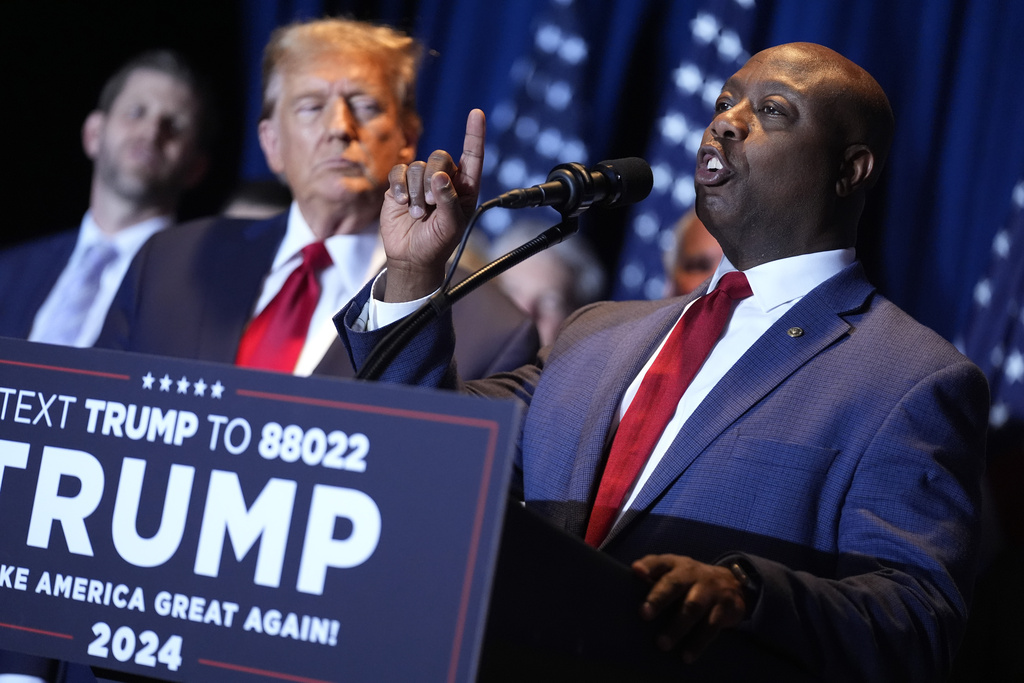
Pros: The genial South Carolinian would be the GOP’s first black vice presidential nominee. Victory would set him up well to be just the second black president and would set up a useful contrast with Vice President Kamala Harris. Worked well with Trump during his first term. A solid fundraiser whose optimism might smooth over Trump’s “American Carnage” rough edges.
Cons: Scott’s presidential campaign this year floundered as he struggled to connect with Trump-era Republican voters. His support for criminal justice reform isn’t the positive it was before crime reemerged as a top issue in 2020. Not from a state that is really in doubt in November. While fairly benign compared to the matters being discussed in Trump’s Stormy Daniels hush money trial, the recently engaged Scott’s carefully guarded dating life seemingly fascinates political reporters.
Odds to be Trump’s pick: +540
Sen. JD Vance (R-OH)
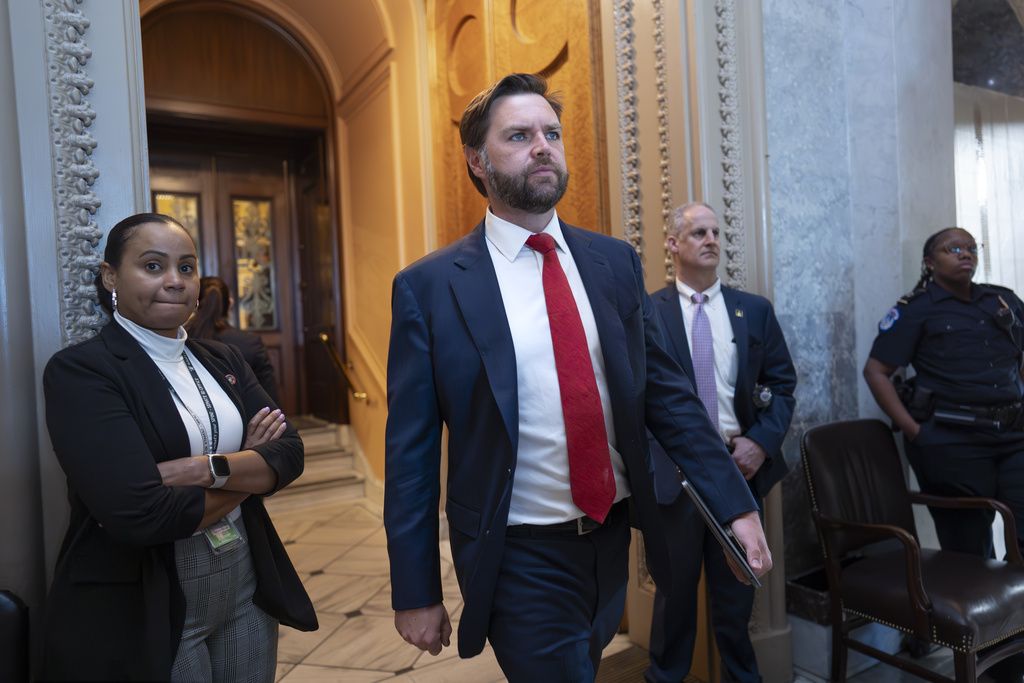
Pros: The most ideologically aligned candidate on Trump’s short lists, the Hillbilly Elegy author could ensure that the Republican Party continues to cultivate a more blue-collar base with economic populism and skepticism of foreign military interventions. Vance is more consistent on many of these policy areas than Trump. Could play a Cheney-like role, but from the opposite wing of the party, in a Trump administration that was often adrift on personnel in the first term. He’s also young, turning 40 after the GOP convention.
Cons: Vance’s departure from the Senate could deprive Trump of a valuable congressional ally, especially after Minority Leader Mitch McConnell (R-KY) steps down from leadership and plays more of a gadfly role. Vance is only a freshman senator, elected two years ago. Ohio isn’t believed to be in play this year, and Vance underperformed while winning his Senate seat.
Odds to be Trump’s pick: +1200
Rep. Elise Stefanik (R-NY)
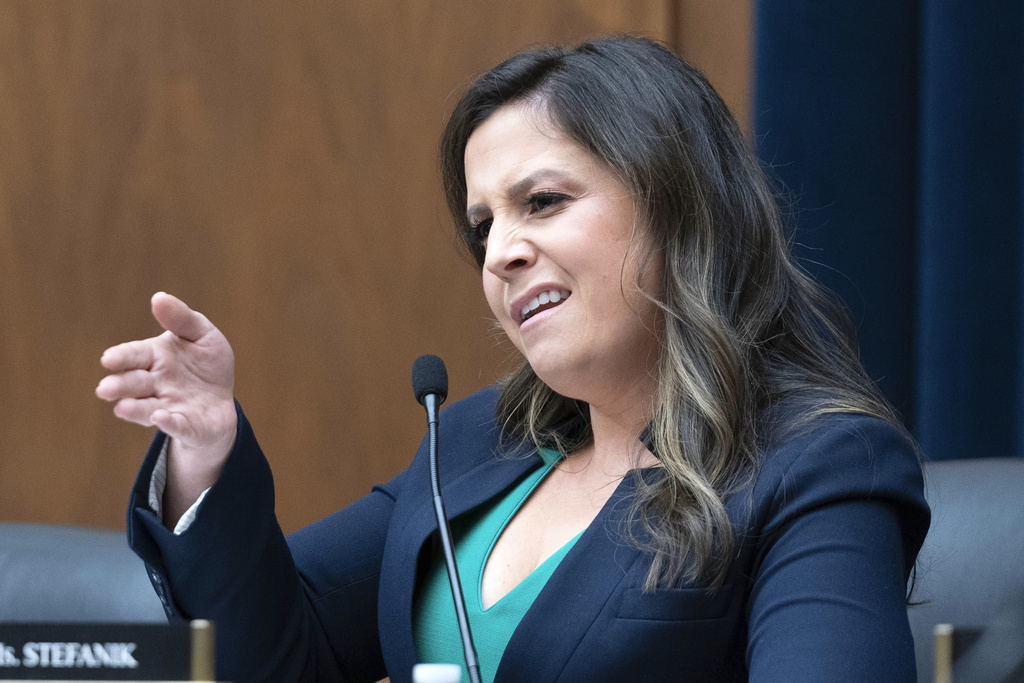
Pros: Stefanik has emerged as a skilled Trump defender and fundraiser. She is a member of the House Republican leadership team. She could help Trump woo suburban women. She does not turn 40 until July, shortly before the convention. Played a role in the GOP’s gains in New York, which proved crucial to the narrow Republican House majority.
Cons: As a New Yorker, Stefanik does not have the most conservative voting record. She probably can’t flip New York, though she might be able to help Republicans there in some down-ballot races.
Odds to be Trump’s pick: +1450
Rep. Byron Donalds (R-FL)
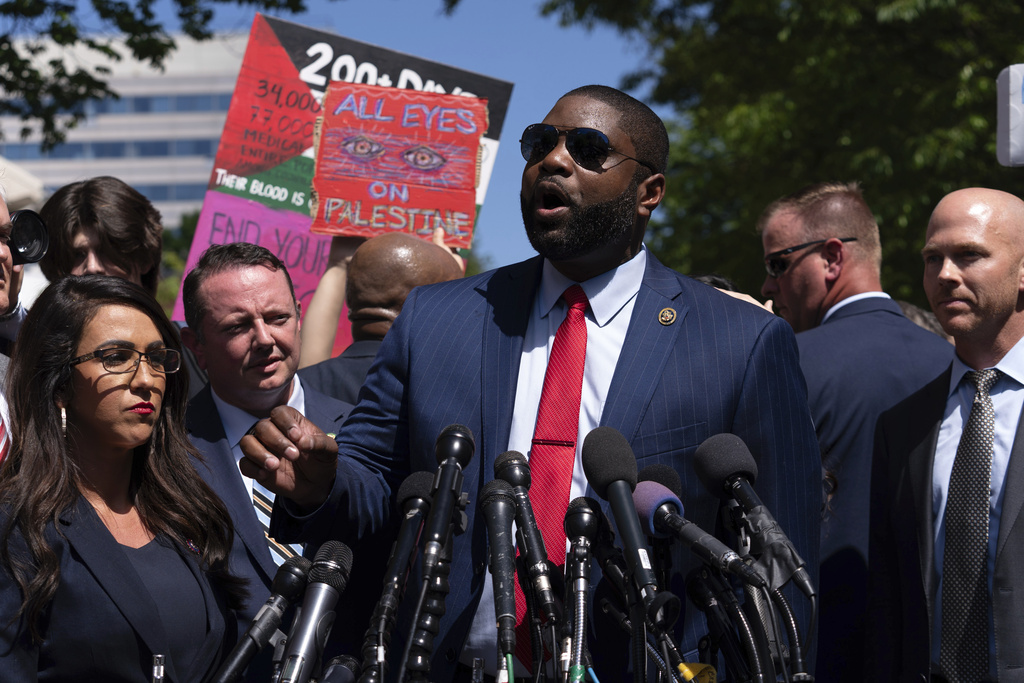
Pros: Relatively young, black, solidly conservative, an effective participant in congressional hearings, good on television. Donalds has impressed people in Trumpworld.
Cons: Donalds is only in his second congressional term. He hasn’t been tested by a national campaign before. As a Florida resident, he also has the same technical constitutional headaches as Rubio or Gov. Ron DeSantis (R-FL). If Donalds moved rather than Trump, it could complicate his political future if the ticket loses in November.
Odds to be Trump’s pick: +3300
Gov. Doug Burgum (R-ND)

Pros: Burgum has unexpectedly worked his way up from an asterisk candidate for the GOP presidential nomination to someone with a real shot to be on the ticket with Trump. A successful businessman and capable fundraiser whose demeanor is a good balance with Trump, similar to Pence in 2016.
Cons: The boringly conventional persona that makes Burgum an asset could also be a liability. Aside from punting abortion to the states, he doesn’t really agree with Trump on any of the issues that set the former president apart from the pre-Trump GOP brand. Is from a small state and doesn’t generate enthusiasm from any wing of the party.
Odds to be Trump’s pick: +1400
Gov. Kristi Noem (R-SD)

Pros: One of the most conservative women available with executive experience and a plausible vice presidential resume, Noem looked like she could be Sarah Palin in a good way and was an early front-runner for veep.
Cons: The story of Noem killing her dog that grabbed so many headlines is symbolic of what some Republican operatives view as her fatal flaw: She gets into strange PR fiascos that she cannot get out of and instead makes worse.
Odds to be Trump’s pick: N/A
Ben Carson

Pros: An accomplished doctor and popular conservative speaker, Carson’s tenure as secretary of housing and urban development under Trump was not one of the more controversial parts of the first term. Ran for president in 2016 and could replicate Pence’s appeal to evangelicals. Might help Trump build on his inroads with black men.
Cons: At 72, Carson would make this an older ticket, dulling one of the GOP’s best anti-Biden messages. Measured, but not an attack dog. Doesn’t obviously bring anything to the table Trump couldn’t get elsewhere, with the significant exception of Carson’s ability to perform brain surgery.
Odds to be Trump’s Pick: +1650
Former Hawaii Democratic Rep. Tulsi Gabbard

Pros: Gabbard brings diversity as a youngish woman of color. She has a military background but is also consistent with Trump’s “America First” foreign policy. Would make a splash. Could be especially helpful with voters undecided between Trump and Robert F. Kennedy Jr. Had a highly effective moment against Harris in a debate already.
Cons: The Hawaiian was until very recently a Democrat and during her congressional career positioned herself as a progressive one. She supported Bernie Sanders in 2016. She has flip-flopped ideologically more than once. Has a strange backstory that will surely be fodder for the press. Will get attacked from all sides. The Bashar Assad meeting.
Odds to be Trump’s pick: +880
CLICK HERE TO READ MORE FROM THE WASHINGTON EXAMINER
DeSantis and former U.S. Ambassador to the United Nations Nikki Haley, Trump’s two main opponents for the Republican nomination, are also longer-shot possibilities.
Both have upsides, but neither is believed to be interested in the job. Haley has yet to endorse Trump.



